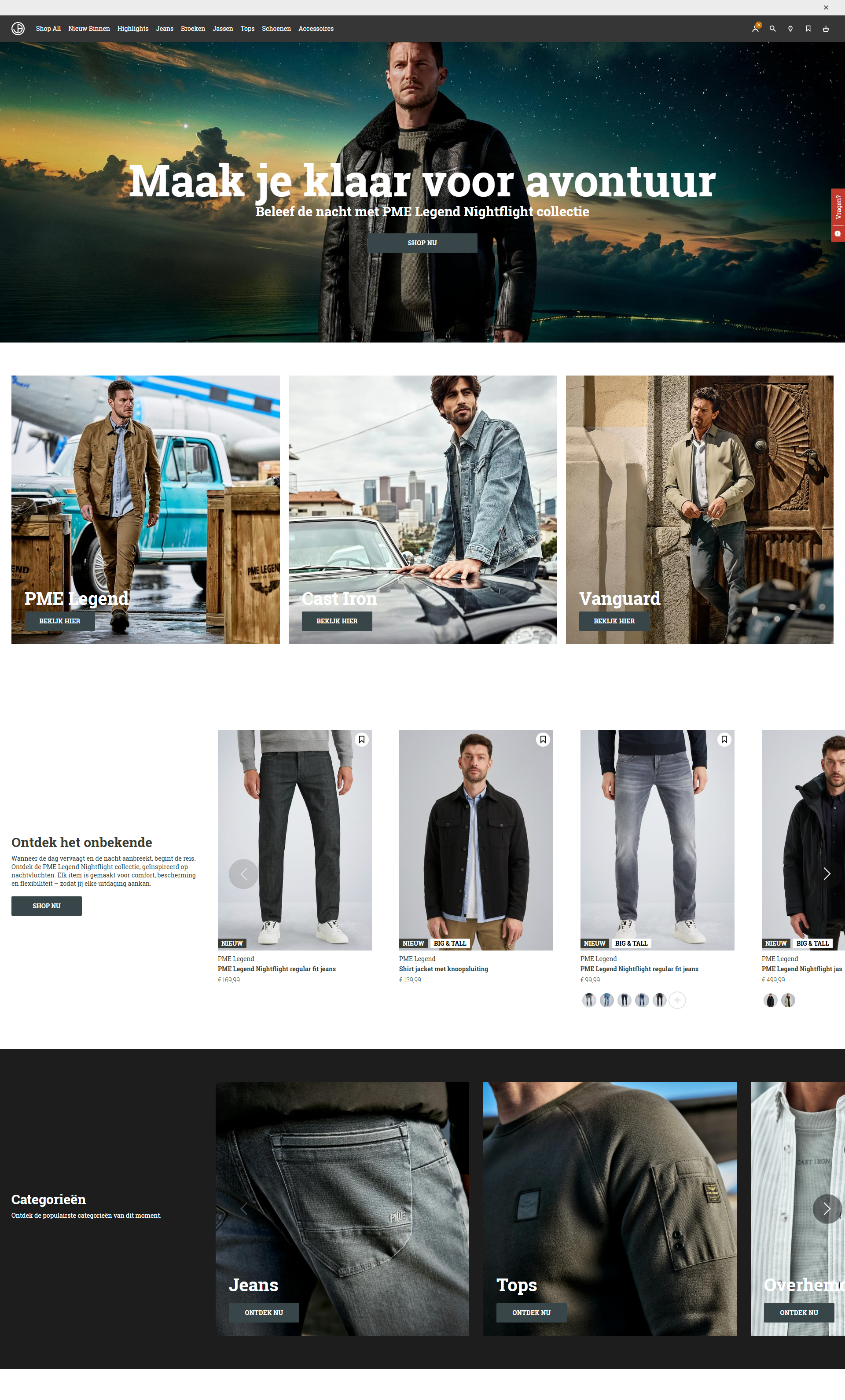GX presents Just Brands
Check out Just brandsLeveraging Data Science to Boost Customer Retention
Ecommerce businesses collect vast amounts of customer data, from online behavior and purchase history to returns and support interactions, but few know how to truly use it to strengthen relationships and make smarter decisions. Just Brands, a Dutch fashion group behind labels like PME Legend, Vanguard, and Cast Iron, faced this challenge. While they had years of transactional and behavioral data, they lacked a structured way to turn it into actionable insights that could improve retention, increase marketing relevance, and reduce returns.
Together with GX, Just Brands chose a different approach. Rather than starting with fixed KPIs, we explored the data openly, uncovering deeper behavioral patterns and questioning existing segmentation methods. This allowed us to identify high-impact opportunities that a more rigid approach might have missed, from improving retention to unlocking cross-sell potential and reducing returns.
Building a scalable data environment
The first step was creating a modular, insight-driven data environment. We integrated purchases, returns, CRM records, digital engagement, and browsing behavior into a single platform and implemented BlueConic as a Customer Data Platform (CDP). This allowed us to build 360° customer profiles that updated in real time. Whenever a customer browsed without buying, abandoned a cart, or returned an item, their profile updated instantly, making every interaction a chance to deliver timely, personalized experiences.
Predictive models that turn data into decisions
To make the most of this environment, we introduced a suite of predictive models designed for fashion, but applicable to any ecommerce business aiming to move from guesswork to precision. These models answer key questions: which first-time buyers are likely to return, which products should be recommended next, which orders are at risk of returns, and how can personalization be applied effectively without overwhelming the customer.
What these models deliver for Just Brands
-
RetentionFocus on buyers most likely to return
-
Cross-SellRecommend products that naturally fit together
-
PersonalizationTailor suggestions to behavior, history, and timing
-
ReturnsIdentify at-risk orders to reduce returns and improve satisfaction
1. Predicting repeat purchase behavior
Our first model scores new customers on their likelihood to buy again, considering early behaviors such as time on site, product type, and engagement with follow-up emails. This enables Just Brands to focus marketing efforts on the customers most likely to become loyal, optimizing retention budgets and driving repeat purchases.
2. Product Relationship Mapping
Rather than generic “people also bought” suggestions, this model maps real relationships between product categories. For instance, customers purchasing knitwear often also buy light sweatshirts but rarely shorts. Understanding these patterns enables smarter cross-selling and more relevant product recommendations across the catalog.
3. Personalized category affinity scoring
This model predicts each customer’s likelihood to engage with specific product types based on price sensitivity, browsing habits, past purchases, and seasonality. It delivers multi-layered personalization, ensuring recommendations feel timely, intuitive, and relevant for each individual.
4. Fit prediction and return risk modeling
Returns are a major cost for ecommerce. This model identifies products and customers at risk of returns, estimates sizing issues, and forecasts potentially problematic orders. With these insights, Just Brands can proactively adjust recommendations, provide sizing guidance, and offer support before returns occur, reducing costs while improving customer satisfaction.
From insight to action
All models were designed for real-time activation. GX ensured that insights directly informed dynamic website content, personalized emails, targeted promotions, and upsell logic. Personalization became a performance lever, guided by live data rather than static assumptions, helping Just Brands engage customers more effectively and drive measurable business outcomes.

Christian Vergunst
CRM Specialist at Just BrandsAt Just Brands, we work with extensive data streams from hundreds of thousands of customers across our four brands. GX helps us translate these insights into actionable campaigns that elevate the shopping experience and make our internal processes more efficient.
Smarter, data-driven growth
Just Brands shows that success isn’t just about having the most data, it’s about using it differently. By creating a flexible, scalable environment and applying predictive models strategically, ecommerce businesses can improve retention, increase cross-sell, reduce returns, and make smarter marketing decisions.

Michel Smits
Account ManagerJust Brands’ approach is a blueprint. By building a system that grows with them and adapts to customer behavior, we’ve given their teams the tools to act fast and achieve real results.





